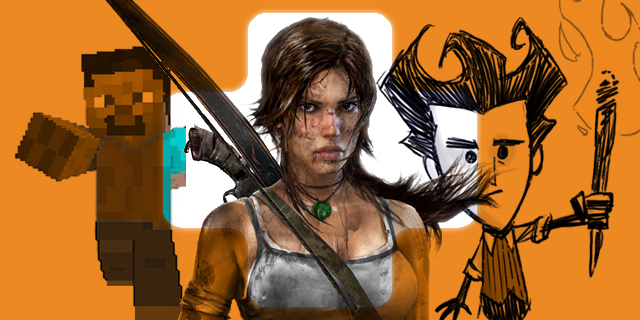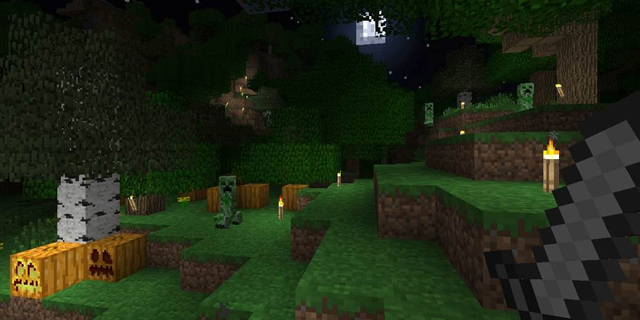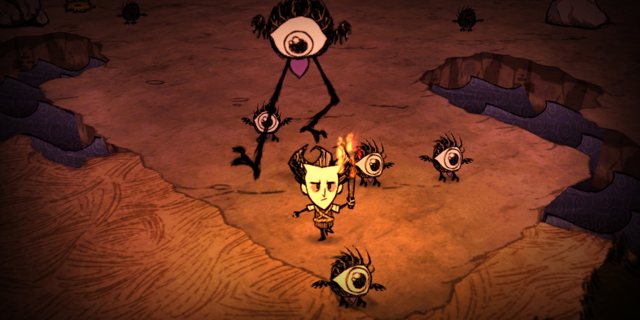
If you boil many games down to their most basic elements, it will be easy to see that a lot of them deal with survival. In Call of Duty, you need to survive the countless baddies who are out for blood. In Super Mario Bros., your duty is to save the princess, but your most basic goal is to survive. You see where I’m going with this. Survival is a key component of most games where your character can die, which is obvious, but it’s something we often forget about, because we’re too busy being distracted by the countless other things games have to offer these days.
There have been numerous titles released in recent years that could fall under the “survival” subgenre. The mere act of attempting to survive while also exploring your surroundings is nothing new, but when examined and expanded upon as closely as some games do, it can lead to an unforgettable experience.
When I started playing Tomb Raider for the first time, I knew it would be fairly linear in terms of the actual story progression, but I had a feeling there might be more of a survival element to the game. The marketing tagline is, after all, “a survivor is born.” After you escape a few perilous situations, you are given a bow and told to hunt for food. Lara is tasked with killing a deer, which gave me the impression that hunting, something you might expect any survival-based game to incorporate, was going to be a focus. Not to say I expected full missions about hunting, but a small aspect that might affect your character, Lara, during certain events if not tended to.

The truth of the matter is that hunting is meaningless. Outside of that tutorial section, which is set up less as a guide to show you how to hunt and more as a guide to show you how to use the bow and, most importantly, kill, you never need to do it. You run across a variety of different animals on your trek across the large and mysterious island, but it only gains you generic experience which can be used to buy upgrades. Lara never gets hungry, and never has to rely on her new bow or hunting skills to survive. It’s not a knock against the game; it’s understandable that Crystal Dynamics didn’t want the return of this blockbuster franchise to rely on something as “uninteresting” as hunting. I just found myself wanting a little more in that regard.
In the end, Tomb Raider is a fantastic experience, and the lacking survivalist aspects aren’t enough to drag it down. It’s more of my desire to see a big-budget action game get that kind of focus, even if it’s minor in the grand scheme of things. It might not ever happen, but it would be an interesting approach to take when many recent game formulas tend to be less about innovation and more about bombast.
Try to imagine what Tomb Raider would have been like if you needed to pay attention to Lara’s hunger between the main story sections of the game; it could have bogged down the experience or, like with the collectibles, added a new and compelling layer to an already great game. But alas, it was not meant to be. This approach to survival in games isn’t always going to be met with success, but for my money, Metal Gear Solid 3: Snake Eater brought exactly the sort of thing I wanted from the new Tomb Raider to the table. Again, not possible in all games or perhaps even a good fit for Lara’s return, but certainly something that can be handled well in big-budget games.

Then I started thinking: yes, many of the games you will play in your life are about surviving. But what about the games that are about nothing but? Or at least the games that primarily focus on survival? They exist, and they are some of the most intriguing titles I’ve come across in quite some time. Throw a character in an environment (the popular choice is a deserted island), give them a brief understanding of the game’s mechanics and send them on their way. They have to watch out for enemies, hunt for food and explore this strange new world as much as possible. On a base level, I find this idea intriguing, even if it’s not always executed the best.
Minecraft is a title that means a lot of different things to a lot of different people, but at its core, it’s about attempting to stay alive while also making the most of a randomly-generated world. Your basic home will start as a simple shack made out of wood, but could easily evolve as you begin to mine for new materials and fight off the many different monsters Minecraft throws at you. Some people may not even bother with the game’s survival mode, or simply play it on peaceful difficulty (which removes all enemies), letting themselves tool around with the many possibilities at hand. That being said, the survival mode is what makes Minecraft stand out (to me, at least). And you don’t need an end goal to realize the potential it has to offer.

While this indie darling only relies on a small part of survival (such as having a hunger meter that you need to be concerned with), it also puts an emphasis on paying attention to your surroundings. If you find yourself digging too deep or are wandering around the world at night, your chances of running into dangerous foes are pretty high. It’s all fairly basic, but the idea of fending off enemies and staying alive goes back to the very notion of most games being about survival without focusing on it. It hones in on this core idea better than many games, but at the end of the day, it’s still a basic version of this concept.
However, other games, such as Don’t Starve, are prime examples of how to take Minecraft-style exploration (complete with a randomly generated world) and use it to create a game that is all about survival and nothing else. As the title suggests, your primary goal is to stay alive as long as possible. As you wander around this world, you’ll end up creating new goals for yourself as you find new things to collect, several different types of food, and tools that will assist in your survival needs.
It’s a charming game, but these central mechanics are what help it stand out the most in a sea of games that aren’t as much about survival as a concept as much as they simply require you to survive in order to proceed. It’s a huge distinction, one that I would love to see make its way into more games, even if it’s not the primary player motivation. It could bring a lot to some otherwise stagnant, lifeless experiences.

But again, a “survival game” could mean many things. You could be talking about survival-horror (with ZombiU coming to mind immediately) or a post-apocalyptic game (despite The Walking Dead’s heavy story focus, it’s still all about staying alive in a terrifying world). Even Dark Souls might fall under that category if you really wanted to stretch the definition. However, the core ideas behind survival games like Don’t Starve (or even another indie hit, Miasmata) are so specific that it’s easy to see why it’s almost a genre all its own.
Trying to focus on one definitive element of most games may seem silly, but games like Minecraft and, more specifically, Don’t Starve feel like entirely complex and completely rewarding experience. While I am almost completely satisfied with Tomb Raider, I can only imagine what could have been when I think about the potential it had when hunting was introduced. There’s a fine line between frustration and brilliance when it comes to those elements, but with the right amount of polish, it could made that small part of an otherwise gigantic game that much more interesting.



















